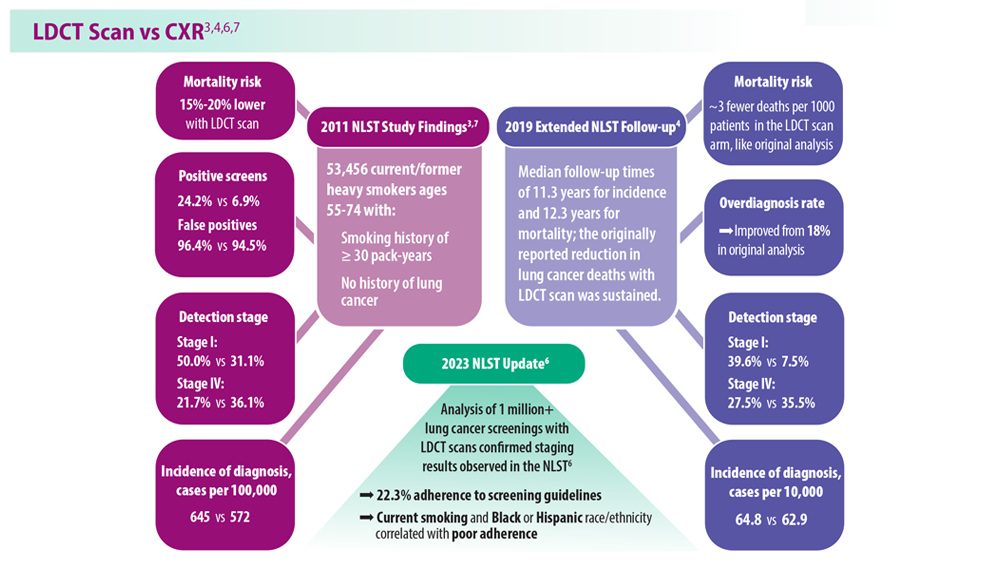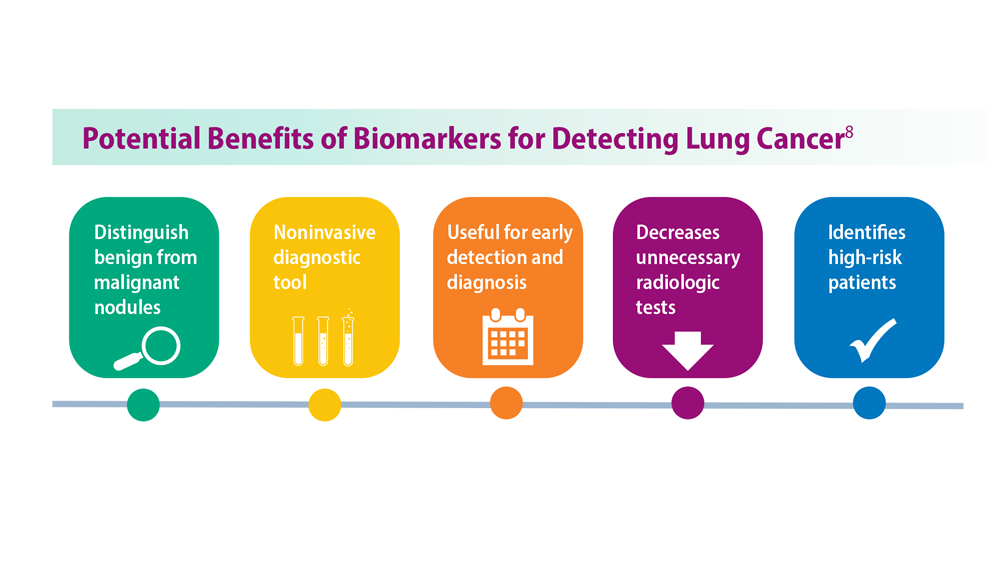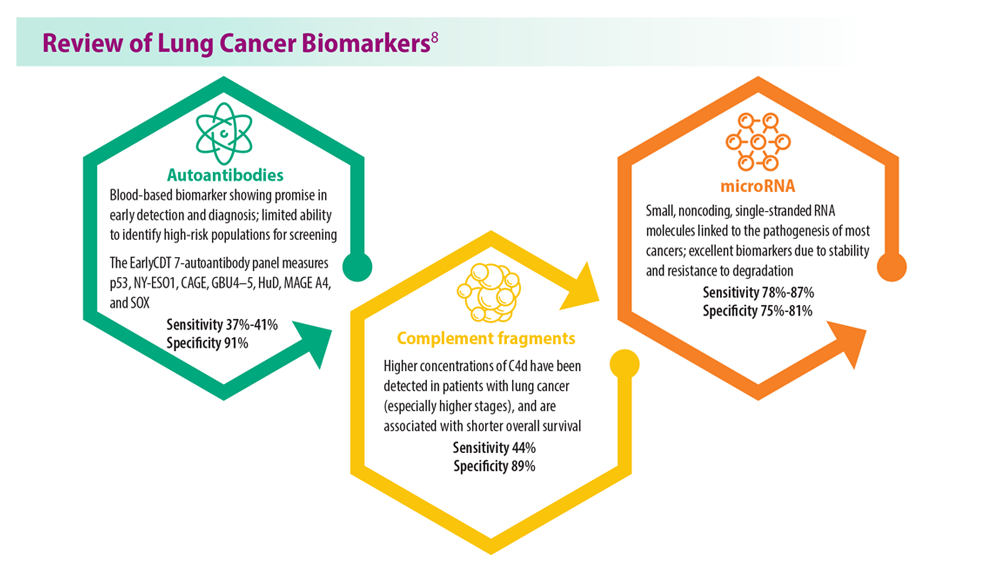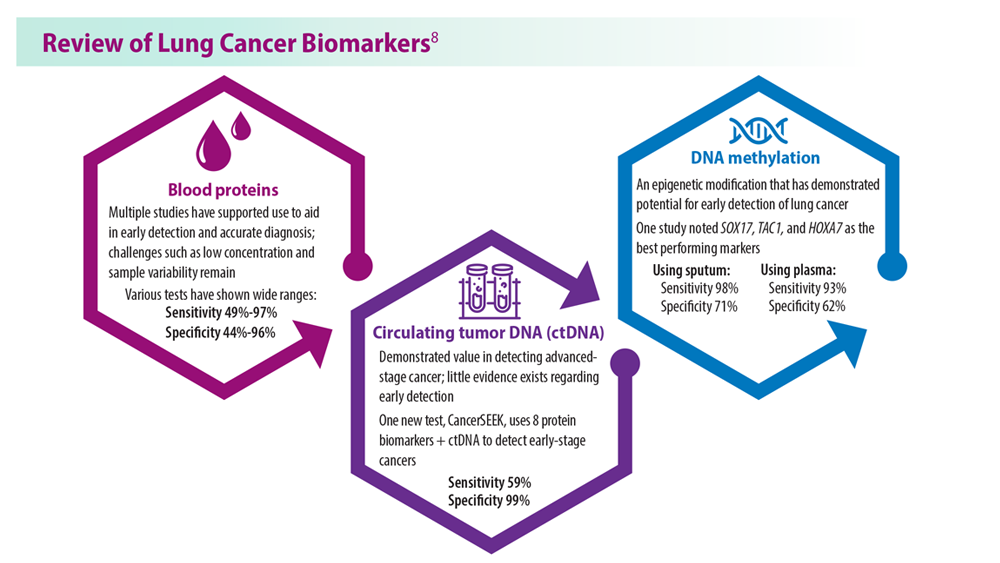Lung Cancer Screening: A Need for Adjunctive Testing
Eric S. Edell, MD, FCCP
Internist and Pulmonologist
Mayo Clinic
Rochester, MN
Slideshow below.
Early detection of lung cancer by screening with low dose computed tomography (LDCT) scanning has long been investigated as a potential means of reducing related deaths.1,2 The 2011 National Lung Screening Trial (NLST) compared LDCT scanning with standard chest radiograph (CXR). Results showed a significant reduction in mortality in high-risk current and former smokers who were screened annually (3×) with LDCT scan vs CXR.3
LDCT scanning for lung cancer is currently a standard of care, partially due to the results of the NLST.4,5 In 2013, LDCT scanning was recommended by the US Preventive Services Task Force (USPSTF), making about 8 million Americans eligible for screening.6 In 2019, an extended NLST cohort follow-up study showed that earlier detection with LDCT scanning not only delayed lung cancer death, but also prevented it—or at least delayed it by a decade or more.4,7 This sparked another change in eligibility criteria in the 2021 USPSTF guidelines, allowing an additional 6.5 million people to be eligible for screening.6
Unfortunately, LDCT scanning has some negative aspects to its use, such as high false-positive rates, repeated radiation exposure, and the lack of ability to distinguish between nodules that are benign or malignant.8 There is a need for adjunctive testing for screening. Some current research is focusing on the development of liquid biomarkers intended to be complementary to imaging as a method of using noninvasive lung cancer diagnostics.
1





